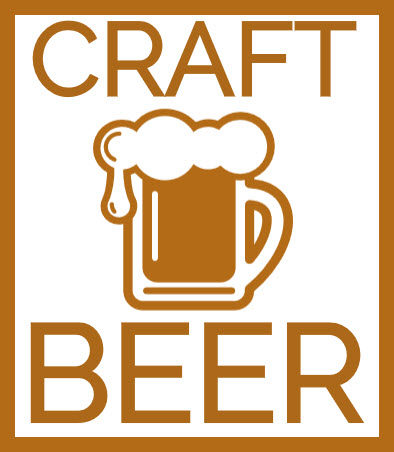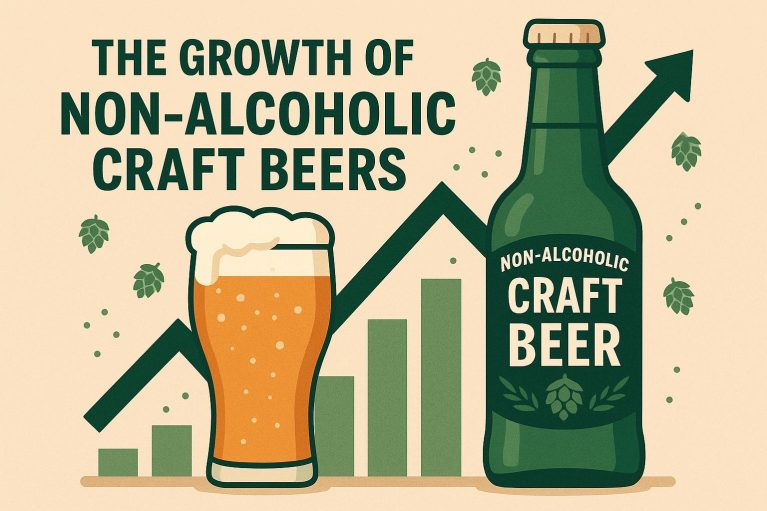The Rising Popularity of Non-Alcoholic Craft Beers
The increasing demand for non-alcoholic craft beers is a noteworthy trend in the beverage industry. Although traditional alcoholic beers have dominated the market for decades, the shift towards healthier lifestyles and the demand for more diverse beverage options have contributed to the growth of this sector. This evolving market underscores a fundamental transformation in how consumers perceive and engage with beverages, especially those seeking an authentic beer experience without the effects of alcohol.
Changing Consumer Preferences
Consumers today are more health-conscious, seeking beverages that align with their lifestyle choices. With rising awareness about the impact of alcohol consumption on health, many individuals are exploring alternative options. Non-alcoholic craft beers appeal to a broad audience, including those who want to reduce their alcohol intake or abstain altogether. These beers offer the flavors and complexities of traditional craft beers without the associated effects of alcohol consumption, allowing individuals to enjoy the social and sensory experience beer offers without concerns about intoxication.
Moreover, the appeal of non-alcoholic craft beers extends beyond merely avoiding alcohol; it also encompasses a newfound appreciation for the art of brewing and flavor combinations. Consumers are more adventurous in trying new flavors and beer styles. This experimentation enriches their drinking experience and encourages them to appreciate the craftsmanship behind each brew.
Technological Innovations in Brewing
Enhancements in brewing technology have significantly contributed to producing high-quality non-alcoholic craft beers. Historically, the challenge has been preserving the beer’s flavor and aroma after removing alcohol. Brewers now utilize advanced techniques to remove alcohol after fermentation or employ methods that limit fermentation itself. These innovations ensure that the flavor profile remains rich and satisfying, making it difficult for consumers to distinguish between alcoholic and non-alcoholic variants.
The brewing industry has witnessed a surge in technical expertise aimed explicitly at non-alcoholic beers. Techniques such as vacuum distillation, reverse osmosis, and arrested fermentation have enabled brewers to craft non-alcoholic beers that retain the taste and texture akin to their alcoholic counterparts. This technological evolution not only safeguards the quality of the beer but also expands the potential for creating new styles and flavors, thus enriching the market.
Market Expansion
The availability and variety of non-alcoholic craft beers have increased, with several new entrants joining the market. Craft breweries are experimenting with a wide array of styles, offering everything from stouts and lagers to IPAs. This diversification is meeting consumer demand and driving market expansion. Notably, the craft beer movement’s spirit of creativity and experimentation has carried over to the non-alcoholic sector, enabling brewers to tailor their offerings to specific consumer preferences and regional tastes.
Moreover, as the demand for such products grows, retail establishments and restaurants increasingly include non-alcoholic craft beers in their offerings. This enhanced visibility helps solidify these beers’ presence in the mainstream market. Additionally, promotional efforts by key players in the industry, including collaborations with influential figures and effective branding campaigns, have catalyzed the broader acceptance and popularity of these beers.
Sustainability and Ethical Considerations
Another factor contributing to the popularity of non-alcoholic craft beers is the rising consumer interest in sustainability and ethical production practices. Many breweries are committed to using locally sourced ingredients and sustainable methods, resonating with eco-conscious individuals. This aligns with broader trends in consumer preferences across the food and beverage sectors. The focus on sustainability encompasses several aspects, such as reducing energy consumption during production, minimizing waste, and using biodegradable packaging.
Breweries are not only aiming to create an excellent beverage but are also striving to ensure their environmental footprint is minimized. This commitment toward ethical practices has fostered strong community ties and has built customer loyalty, as increasingly consumers are choosing brands whose values reflect their own. By integrating these practices into their operations, breweries are aligning with a generation of consumers who value transparency and authenticity in their purchasing decisions.
For those interested in exploring more about non-alcoholic craft beers, brewers like BrewDog and Athletic Brewing offer a wide range of options that exemplify these trends. These companies are noteworthy for their dedication to quality and commitment to innovation, setting benchmarks for others in the industry and meeting the growing demand for flavorful and ethically produced non-alcoholic beverages.
The growth of non-alcoholic craft beers signifies a broader shift in consumer habits and preferences, focusing on health, flavor, and sustainability. This change highlights consumers’ readiness to embrace products that align with evolving lifestyle choices while challenging traditional market dynamics. As the industry continues to innovate, it will likely see further expansion and mainstream acceptance. The future looks promising, with more brewers investing in research and development to refine non-alcoholic beer offerings and tantalize global palates.

